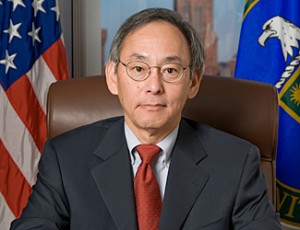Steven Chu ‘70 resigned from his position as President Obama’s Secretary of energy on Feb 1. In four years, Chu has accomplished several significant feats and has contributed to Obama’s Cabinet in a way which the University should be proud of. Throughout his years as secretary, Chu has wisely invested in clean-energy solutions and expertly handled a number of environmental disasters.
The Obama administration passed the American Recovery and Reinvestment Act (commonly referred to as the stimulus) in 2009, sending substantial funding to Chu’s department. Chu used the $36 million he was granted wisely, investing in the Advanced Research Projects Agency-Energy, which conducts scientific research on prevalent energy issues, particularly clean energy. As secretary of energy, Chu oversaw funding for such programs as Plants Engineered to Replace Oil, Rare Earth Alternatives in Critical Technologies, and Building Energy Efficiency Through Innovative Thermodevices. These programs aid the Obama administration’s ever-important goal of finding alternative energy sources and improving current energy efficiency.
One of Chu’s most notable achievements during his tenure was the manner in which he addressed the catastrophic Gulf oil spill of 2010. During this time, Chu was lauded for communicating directly with BP officials to quickly stop the flow of oil, devising unique solutions to halt the problem along the ways. Although his area of expertise is physics, which he studied here at the UR, Chu was able to effectively collaborate with geologists and seismologists in the spill’s wake.
In the aftermath of the Fukushima Daiichi incident in 2011, Chu effectively defended his position on nuclear energy. He had previously asserted the importance of nuclear plants in developing clean and efficient energy sources, and after the explosion at Fukushima Daiichi, a Japanese nuclear power plant, Chu maintained his position that nuclear energy is a good solution to finding alternative energy sources. Since the disaster, the Obama administration has dedicated $8 million to nuclear-energy research. Chu, however, was careful to ensure safety precautions are taken at U.S. nuclear power plants prevent such a catastrophe from repeating.
Most recently, in the wake of Hurricane Sandy, Chu played a prominent role in restoring energy to the east coast and even visited affected areas after the storm. Chu traveled to many commmunities throughout New Jersey and New York and met with local leaders as well as representatives from the Federal Emergency Management Agency. Moreover, Chu saw the disaster as a signal for energy reform, so that in the event of another event such as Hurricane Sandy, there would be several sources from which to restore energy.
Chu has led the clean energy research initiative and handled a variety of challenges with notable aplomb. His role in the Obama administration over the past four years is an excellent example of how an academic can serve as a leader in the federal bureaucracy. In four years, Chu has, without a doubt, earned his place as not only one of the University’s most notable alumni, but as one of President Obama’s wisest appointments from his first four years.
Garber is a member of the class of 2016.



